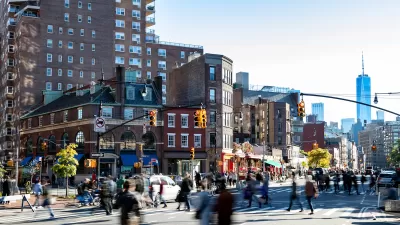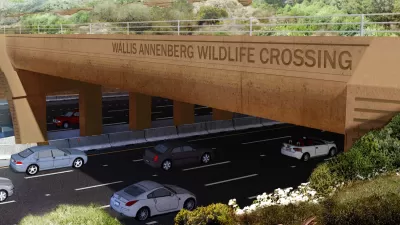A stretch of warehouses, parking lots, and rundown buildings in Minneapolis -- once envision as technology corridor -- has been instead been transformed into a thriving literary arts community, complete with new businesses and residences.
"MINNEAPOLIS - Back in the heady days of Web 1.0, it seemed that every city tried to create its own Silicon Alley, and this one was no exception.
Along Washington Avenue, between the University of Minnesota and downtown Minneapolis, there were acres of parking lots, a large warehouse-style liquor store and a smattering of commercial spaces that had once served the thriving flour mill district along the Mississippi River, but later became seedy bars and flophouses.
The city tried to rebrand the area as a technology corridor, but not a single dot-com materialized. Instead, three nonprofit organizations formed a partnership in 1999, bought three adjacent warehouses and renovated them into Open Book, which says it is the largest - if not the only - literary and book arts center in the United States.
It is not uncommon for the arts to revitalize a neighborhood, but it is certainly unusual for old-fashioned literature and books to lead the way.
Since Open Book made its debut in May 2000, however, a steady flow of arts organizations have followed, including the Guthrie Theater, designed by Jean Nouvel, who recently won the Pritzker Architecture Prize. Then there is the Mill City Museum, the MacPhail Center for Music, Minneapolis Central Library and a few smaller theaters and art galleries.
More than 1,000 new residential units have been built as well as new and redeveloped commercial property, increasing the value of neighborhood property to $334 million in 2006, from an estimated $25 million in 1994, according to the Metropolitan Council, a Twin Cities regional development organization. Where a sea of parking lots once existed, there is now a parking problem.
"We know for a fact this was the first real estate home for the literary arts in the nation," said Liz Petrangelo, the chairwoman of Open Book's board, which was formed by the three organizations to develop and manage the 55,000-square-foot property. "We don't know if anything like it has happened since, but we get calls from all over the country asking how we did this.""
Thanks to ArchNewsNow
FULL STORY: With Books as a Catalyst, Minneapolis Neighborhood Revives

Pennsylvania Mall Conversion Bill Passes House
If passed, the bill would promote the adaptive reuse of defunct commercial buildings.

Planning for Accessibility: Proximity is More Important than Mobility
Accessibility-based planning minimizes the distance that people must travel to reach desired services and activities. Measured this way, increased density can provide more total benefits than increased speeds.

World's Largest Wildlife Overpass In the Works in Los Angeles County
Caltrans will soon close half of the 101 Freeway in order to continue construction of the Wallis Annenberg Wildlife Crossing near Agoura Hills in Los Angeles County.

Eviction Looms for Low-Income Tenants as Rent Debt Rises
Nonprofit housing operators across the country face almost $10 billion in rent debt.

Brightline West Breaks Ground
The high-speed rail line will link Las Vegas and the Los Angeles area.

Colorado Bans No-Fault Evictions
In most cases, landlords must provide a just cause for evicting tenants.
City of Costa Mesa
Licking County
Barrett Planning Group LLC
HUD's Office of Policy Development and Research
Mpact Transit + Community
HUD's Office of Policy Development and Research
Tufts University, Department of Urban and Environmental Policy & Planning
City of Universal City TX
ULI Northwest Arkansas
Urban Design for Planners 1: Software Tools
This six-course series explores essential urban design concepts using open source software and equips planners with the tools they need to participate fully in the urban design process.
Planning for Universal Design
Learn the tools for implementing Universal Design in planning regulations.























